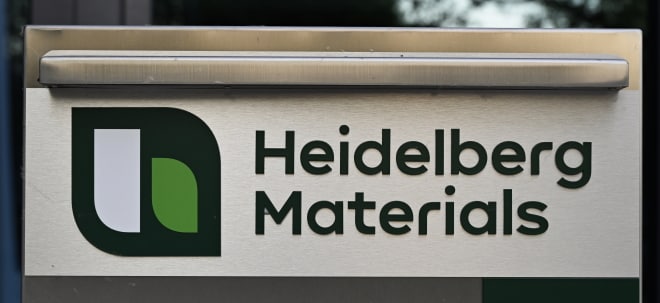Microbiome Cosmetic Market to Hit USD 2.24 Billion by 2031 | Driven by Skin Serums, Creams, and Hair Care Demand - Valuates Reports
BANGALORE, India, May 26, 2025 /PRNewswire/ -- Microbiome Cosmetic Market is Segmented by Type (Cream and Lotion, Skin Cleansing Lotions, Skin Facial Masks, Skin Serums), by Application (Skin Care, Hair Care).
The Global Market for Microbiome Cosmetic was valued at USD 875 Million in the year 2024 and is projected to reach a revised size of USD 2241 Million by 2031, growing at a CAGR of 14.6% during the forecast period.
Claim Your Free Report: https://reports.valuates.com/request/sample/QYRE-Auto-38O7122/Global_Microbiome_Cosmetic_Market
Major Factors Driving the Growth of Microbiome Cosmetic Market:
The Microbiome Cosmetic Market is expanding rapidly as consumers and brands alike recognize the importance of maintaining healthy skin microbiota. It spans across skincare, hair care, and body care segments, with products targeting a wide range of concerns from aging and acne to dryness and inflammation. The demand for transparent, clean-label, and clinically validated products is pushing companies to innovate in formulation and marketing. With growing investment in research and the backing of dermatologists and scientists, microbiome cosmetics are transitioning from niche to mainstream. As skin health becomes synonymous with microbial balance, this market is expected to remain at the forefront of cosmetic evolution.
Unlock Insights: View Full Report Now! https://reports.valuates.com/market-reports/QYRE-Auto-38O7122/global-microbiome-cosmetic
TRENDS INFLUENCING THE GROWTH OF THE MICROBIOME COSMETIC MARKET:
Skin serums are significantly driving the growth of the Microbiome Cosmetic Market by offering targeted delivery of active ingredients that support skin barrier function and promote a healthy microbiome. These lightweight, fast-absorbing formulations are designed to penetrate deeply into the skin and influence the balance of beneficial bacteria, which helps in managing issues like acne, dryness, and inflammation. The demand for microbiome-friendly serums is rising among consumers seeking clean beauty solutions that align with their skin's natural ecosystem. Moreover, serums often feature prebiotics, probiotics, and postbiotics, which enhance skin immunity and texture. As awareness about the microbiome-skin relationship expands, skincare brands are increasingly launching microbiome-focused serums to cater to this evolving preference, fueling market expansion.
Creams and lotions play a central role in the growth of the Microbiome Cosmetic Market by offering barrier-supportive and hydrating formulations that maintain microbial balance. These products cater to a wide consumer base due to their ease of use and ability to deliver soothing, long-lasting effects across various skin types. Incorporating ingredients like ceramides, probiotics, and prebiotics, these moisturizers help restore the skin's protective layer and encourage the growth of beneficial microorganisms. The growing preference for microbiome-friendly personal care products—especially among people with sensitive skin or chronic conditions like eczema—has led major brands to reformulate or introduce new creams and lotions with microbiome-supportive ingredients. Their versatility and mass appeal ensure consistent market demand.
Hair care is emerging as a key driver of the Microbiome Cosmetic Market, as consumers become more aware of the scalp microbiome's role in maintaining healthy hair and preventing issues such as dandruff, itchiness, and hair thinning. Microbiome-friendly shampoos, conditioners, and scalp treatments focus on maintaining the balance of natural scalp bacteria rather than stripping them away. These products help reduce inflammation, regulate sebum production, and improve hair resilience. With increasing demand for holistic and personalized hair care routines, brands are innovating formulations that include prebiotics and probiotics specifically designed for scalp health. As scientific evidence links hair wellness with scalp microbiota, this category is witnessing significant product development and consumer interest.
Consumers are becoming increasingly educated about the role of skin microbiota in overall skin health, prompting a shift toward microbiome-friendly cosmetic solutions. This awareness is driven by scientific publications, dermatological studies, and marketing campaigns that emphasize the connection between skin conditions and bacterial imbalance. As users prioritize long-term skin health over quick fixes, they seek out formulations that nurture their skin's natural ecosystem. This trend is particularly strong among younger demographics who prefer preventive skincare approaches. The growing interest in science-backed skincare has led to heightened demand for microbiome cosmetics that support barrier repair, balance pH levels, and enhance the skin's natural defenses.
The move toward personalized skincare is amplifying the need for microbiome-focused products that adapt to individual skin microbiota profiles. Advancements in skin diagnostic technologies now allow consumers to analyze their skin's microbial composition and purchase customized products accordingly. Brands are responding by creating tailored formulations based on skin type, environment, and microbiome diversity. This trend enhances consumer engagement and loyalty while positioning microbiome cosmetics as high-value, science-driven skincare options. Personalization not only improves efficacy but also fosters trust among users concerned about allergies, sensitivities, and overuse of synthetic ingredients, driving steady growth in the microbiome cosmetic space.
The clean beauty movement, which promotes transparency and natural ingredient usage, aligns closely with the principles of microbiome skincare. Consumers seeking non-toxic, preservative-free products often gravitate toward microbiome-friendly formulations that avoid harsh chemicals disrupting the skin's natural flora. Brands emphasizing ethical sourcing, sustainability, and minimal processing are gaining popularity, particularly among millennials and Gen Z consumers. As clean beauty becomes more mainstream, microbiome cosmetics are increasingly viewed as an extension of health-conscious lifestyles. This shift is steering product development and marketing strategies toward non-disruptive skincare, propelling the microbiome cosmetic segment within the broader clean beauty industry.
The Microbiome Cosmetic Market benefits greatly from scientific validation and dermatologist endorsements. Clinical research linking microbiome balance with reduced skin irritation, aging, and chronic conditions like acne and rosacea has encouraged consumers to adopt these solutions with greater confidence. Dermatologists are recommending microbiome-based products for patients with sensitive skin, which adds medical credibility to the segment. As pharmaceutical and skincare companies collaborate on microbiome innovation, there is a growing pipeline of patent-backed formulations entering the market. This professional support has created a perception of effectiveness and safety, making microbiome cosmetics more appealing in both clinical and consumer settings.
Claim Yours Now! https://reports.valuates.com/api/directpaytoken?rcode=QYRE-Auto-38O7122&lic=single-user
MICROBIOME COSMETIC MARKET SHARE:
The application of microbiome cosmetics is not limited to skin care, but also includes other fields such as hair care. The core manufacturers of microbiome cosmetics include L'Oréal S.A., Unilever, The Estée Lauder Companies and Tula Skincare, and the top four manufacturers account for nearly 50% of the global market share.
In terms of regional distribution, the United States is the world's largest microbiome cosmetics production region, followed by the European and Asian markets. Creams and lotions are the largest market segment, with a market share of more than 40%, and the largest application market is skin care. The Chinese market has changed rapidly in the past few years, and the market size is expected to grow further in the next few years.
Key Companies:
- Unilever
- L'Oréal S.A.
- The Estée Lauder Companies
- Johnson & Johnson
- Revlon
- ESSE SKINCARE
- AOBiome
- Aurelia
- Glowbiotics
- Shiseido
- P&G
- Aosimei Daily-Use Chemical Industry
- Shandong Focusfreda Biotech
- PROYA
- HomeFacial Pro
- Chioture
- Pechoin
- Shanghai Chicmax Cosmetic
SUBSCRIPTION
We have introduced a tailor-made subscription for our customers. Please leave a note in the Comment Section to know about our subscription plans.
DISCOVER MORE INSIGHTS: EXPLORE SIMILAR REPORTS!
- Microbiome Cosmetic Product Market
- Microbiome Cosmetic Ingredient Market
- Rebalancing Agent for Cosmetics Market
- The global market for Skin Microbiome Modulator was valued at USD 687 Million in the year 2024 and is projected to reach a revised size of USD 2031 Million by 2031, growing at a CAGR of 17.0% during the forecast period.
- The global market for Microbiome Therapeutics was estimated to be worth USD 91 Million in 2023 and is forecast to a readjusted size of USD 892.2 Million by 2030 with a CAGR of 38.1% during the forecast period 2024-2030.
- The global market for Organic Cosmetics was valued at USD 842 Million in the year 2024 and is projected to reach a revised size of USD 1595 Million by 2031, growing at a CAGR of 9.7% during the forecast period.
- The global market for Cosmetic Glitter was valued at USD 17.2 Million in the year 2024 and is projected to reach a revised size of USD 22 Million by 2031, growing at a CAGR of 3.6% during the forecast period.
- The global Cosmetics ODM market size was USD 7310 Million in 2023 and is forecast to a readjusted size of USD 10750 Million by 2030 with a CAGR of 5.6% during the forecast period 2024-2030.
- The global Cosmetic Grade Polydeoxyribonudeotide (PDRN) market was valued at USD 26 Million in 2023 and is anticipated to reach USD 284.9 Million by 2030, witnessing a CAGR of 43.3% during the forecast period 2024-2030.
DISCOVER OUR VISION: VISIT ABOUT US!
Valuates offers in-depth market insights into various industries. Our extensive report repository is constantly updated to meet your changing industry analysis needs.
Our team of market analysts can help you select the best report covering your industry. We understand your niche region-specific requirements and that's why we offer customization of reports. With our customization in place, you can request for any particular information from a report that meets your market analysis needs.
To achieve a consistent view of the market, data is gathered from various primary and secondary sources, at each step, data triangulation methodologies are applied to reduce deviance and find a consistent view of the market. Each sample we share contains a detailed research methodology employed to generate the report. Please also reach our sales team to get the complete list of our data sources.
GET A FREE QUOTE
Valuates Reports
For U.S. Toll-Free Call 1-(315)-215-3225
WhatsApp: +91-9945648335
Website: https://reports.valuates.com
Blog: https://valuatestrends.blogspot.com/
Pinterest: https://in.pinterest.com/valuatesreports/
Twitter: https://twitter.com/valuatesreports
Facebook: https://www.facebook.com/valuatesreports/
YouTube: https://www.youtube.com/@valuatesreports6753
https://www.facebook.com/valuateskorean
https://www.facebook.com/valuatesspanish
https://www.facebook.com/valuatesjapanese
https://valuatesreportspanish.blogspot.com/
https://valuateskorean.blogspot.com/
https://valuatesgerman.blogspot.com/
https://valuatesreportjapanese.blogspot.com/
Logo - https://mma.prnewswire.com/media/1082232/5337846/Valuates_Reports_Logo.jpg
![]() View original content to download multimedia:https://www.prnewswire.com/news-releases/microbiome-cosmetic-market-to-hit-usd-2-24-billion-by-2031--driven-by-skin-serums-creams-and-hair-care-demand---valuates-reports-302465298.html
View original content to download multimedia:https://www.prnewswire.com/news-releases/microbiome-cosmetic-market-to-hit-usd-2-24-billion-by-2031--driven-by-skin-serums-creams-and-hair-care-demand---valuates-reports-302465298.html
SOURCE Valuates Reports


